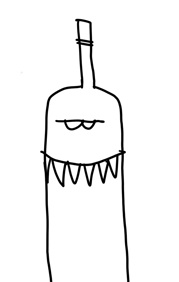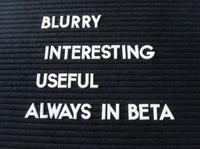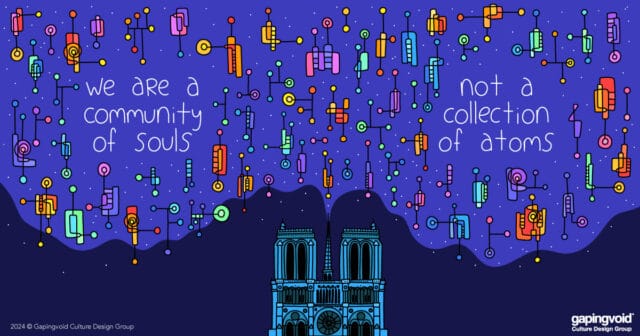
[Official “Smarter Wine” logo etc.]
At Stormhoek, the wine company I work for, our basic schtick is this philosophy we call “Smarter Wine”. This is what Mark Earls would call the “Purpose-Idea” of the company; i.e. the reason we get out of bed in the morning and go to work every day. Here are some thoughts on what Smarter Wine means, in no particular order:
1. Smarter Wine does not imply that we’re “smarter” than anywhere else. It’s an ideal that we aspire to, not that we embody. The idea is not something Stormhoek will ever “own”, like a tagline in an ad campaign. It’s an idea I think EVERYBODY in the trade should get their head around, be they makers, sellers or buyers, large or small. But hey, I would say that.
2. Everyone’s definition of “smarter” will be different. I’m OK with that. To me, it means continually engaging the customer at a higher level, continually raising the bar.
3. The brilliant thinker, Russell Davies identified four keywords that will govern the future of the advertising business. About as succinct a list as I’ve ever seen:
Blurry.
Useful.
Interesting.
Always In Beta.
“Always In Beta” is a popular term in Silicon Valley. In an ideal world, it would be equally popular in the wine trade as well. It’s unfortunate that this is not the case.
4. A word people like using in the wine trade is “innovation”. Some companies pay it only lip service, some companies actually try to embrace it full-on. But it’s harder than it looks. Wine is one of the oldest products in the world; change happens slowly and with great reluctance. Sure, putting wine in funky-dunky plastic or aluminum bottles might be technically “innovative”, but does the average wine customer actually want that? A more interesting question for me is how the wine connects with people on an emotional and intellectual level. That to me is where the real action is.
5. Big ideas start out as little ideas, and lots of them. What do companies like Apple, Nike, Innocent Drinks and Starbucks have in common? Superficially, very little. But one thing you’ll notice about them is that they’re constantly coming up with new stuff. Constantly trying out new ideas, seeing what happens, and if it doesn’t work out, they move on quickly. Their schtick is all about taking frequent small steps in the right direction, as opposed to betting the farm on the annual Superbowl ad. Creating a constant stream of “Social Objects”. We take a similar approach at Stormhoek [We’re a small wine company, frankly, so we have no other choice]. Different branding ideas, different cartoon label ideas, different sponsorship and PR ideas. On one level it’s a highly unpredictable way to go about it. On another level, it’s amazing how certain we are that SOMETHING good comes out of it eventually.
6. Eighty per cent of vineyards in the world do not make a profit. Eighty. Per. Cent. Other fun stats: There are 50 countries in the world that have wine industries. Italy alone has 500,000 vineyards. Sicily has ten times the vineyards as Napa Valley. Conclusion: The competition is off the scale. Besides making good wine [obviously], the only way forward is to somehow figure out, by any means necessary, how to rise above the clutter. The only way to do this is to speak to people in a way our industry has never spoken to them before.
7. I am not a wine expert. I am not a wine snob. I am not a wine bore. I am not even a wine geek. When I think of the business I’m in, I do not think of the vineyards, the lifestyle porn that’s famously attached to the industry, the “hummingbirds gathering nectar in the morning dew” palaver. My thoughts are more prosaic. I think about a person pushing a shopping cart through a supermarket, a teacher or a nurse, perhaps, who’s there buying food because she’s cooking spaghetti for her boyfriend that evening, who just wants a good bottle of wine for under ten dollars to go with it. Her needs, as simple and basic as they are, interest me FAR MORE than satisfying the vast sea of social pretentions that lives inside the wine trade.
8. Not everybody inside the trade will “get” the Smarter Wine idea. In marketing terms, it not that big a deal. As Oscar Wilde once quipped, “A man cannot be too careful in the choice of his enemies.”




